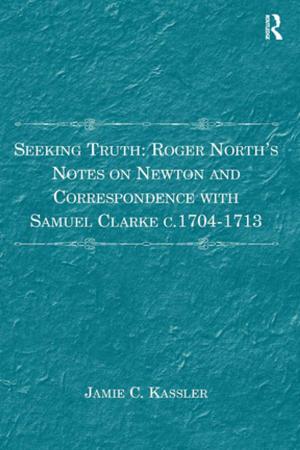US Foreign Policy in the Middle East
From Crises to Change
Nonfiction, Social & Cultural Studies, Political Science| Author: | Yakub Halabi | ISBN: | 9781317003212 |
| Publisher: | Taylor and Francis | Publication: | February 11, 2016 |
| Imprint: | Routledge | Language: | English |
| Author: | Yakub Halabi |
| ISBN: | 9781317003212 |
| Publisher: | Taylor and Francis |
| Publication: | February 11, 2016 |
| Imprint: | Routledge |
| Language: | English |
US foreign policy in the Middle East has for the most part been shaped by the eruption of major crises that have revealed the deficiency in and bankruptcy of existing consensus and conceptions. Crises generate a new set of ideas to address the roots of the crisis and construct a new reality that would best serve US interests. Further, crises stimulate new ideological and ideational debates that de-legitimate existing practices and prevailing ideas. Yakub Halabi analyzes the way ideas and conceptions have guided US foreign policy in the Middle East, the erection of institutions through which these ideas were brought into practice, and the manner in which these ideas became obsolete and were modified by new ideas. The selection of crises examined is persuasive and provides a critical lens to observe important turning points in American foreign policy.
US foreign policy in the Middle East has for the most part been shaped by the eruption of major crises that have revealed the deficiency in and bankruptcy of existing consensus and conceptions. Crises generate a new set of ideas to address the roots of the crisis and construct a new reality that would best serve US interests. Further, crises stimulate new ideological and ideational debates that de-legitimate existing practices and prevailing ideas. Yakub Halabi analyzes the way ideas and conceptions have guided US foreign policy in the Middle East, the erection of institutions through which these ideas were brought into practice, and the manner in which these ideas became obsolete and were modified by new ideas. The selection of crises examined is persuasive and provides a critical lens to observe important turning points in American foreign policy.















